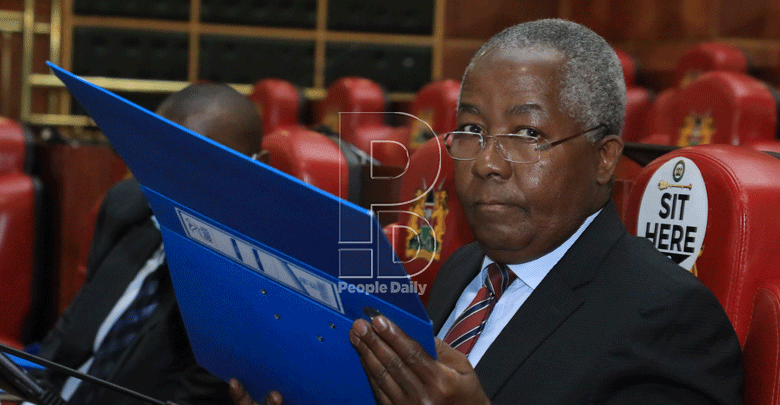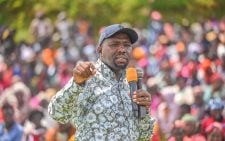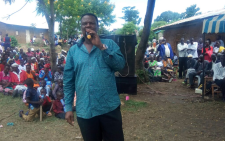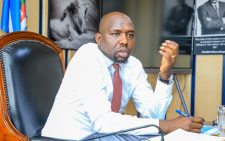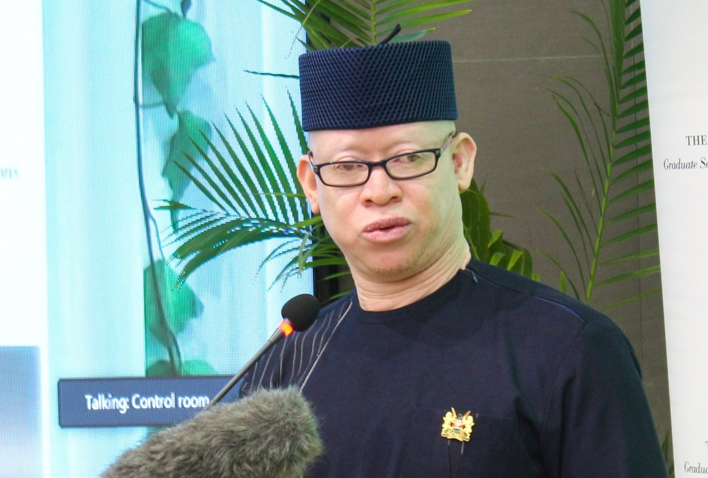21 years living with HIV and surviving eye cancer
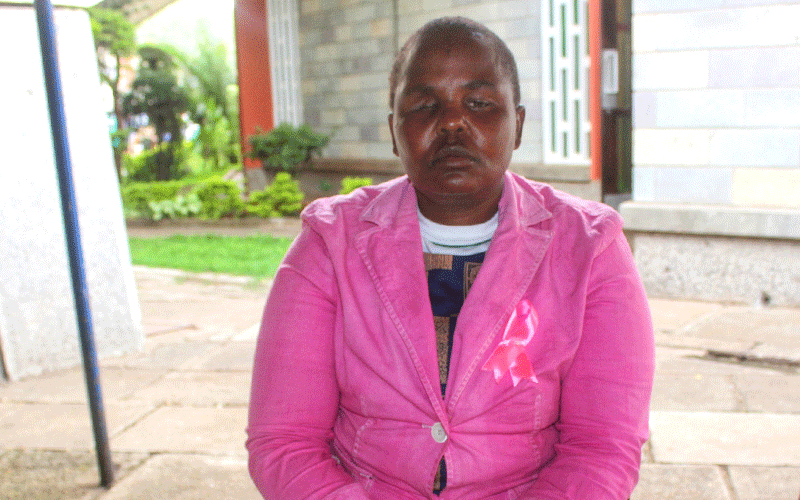
As we mark World Aids Day today, Josephine Leshao who has lived with HIV for more than two decades shares what it has been like living with the virus.
Harriet James @harriet86jim
In 1999, Josephine Leshao received the most devastating news in her life—she was HIV positive.
She had just delivered her last born son at Tenwek Mission Hospital in Bomet.
“I was shocked. I didn’t have rashes, wounds or other symptoms that could make me think that I would one day be carrying the virus. Luckily, my son tested negative,” she recalls.
What made her take the news in stride was the counselling the doctors gave her at the hospital every day, ensuring that she took her Antiretroviral drugs (ARVs) and followed instructions until she was discharged from hospital.
However, things took a different twist when she arrived at her matrimonial home and questioned her husband on her status.
“It was hard. You can’t tell a Maasai man that he is the one who infected you.
You can’t even dare ask him questions since the words of women are taken lightly in our culture.
When I got the guts to ask him why he infected me with the virus, he had the audacity to tell me that I was not the only sick person in the world and that I should not disturb him,” says the 42-year-old.
The situation was made worse when her husband brought two other wives home.
She recalls how she was only 13 years old when her husband took her as his wife, how they had lived together for 12 years and how their union was cemented by the birth of their three children.
“How could I sit at home, be faithful to my husband and at the end of the day, he infects me with HIV and he wasn’t even remorseful? That really hurt me. At one point, my child fell ill, but he never cared or bothered, yet he had money and cattle,” she says. She was angry with life, angered by the man she loved. But for the sake of her children, she was determined to live. However, to date, she has anger towards men and admits to hating them.
No stigma
She didn’t tell anyone, of what had happened to her. Without money, she left home with her children in 2001 and went to her friend. Her friend, who stayed in Naivasha, took her in together with her three children and would pay her a little amount of money for taking care of her house.
Josephine continued taking her ARV drugs. “I thank God my friend did not stigmatise me. Sometimes my friend would go to hospital with my card whenever I was busy and get the ARV drugs for me.
I stayed with her for five years until she was transferred to Nyeri. But she left me in a rented house, which she had paid for one year and Sh10,000 to start a business. She also furnished my house,” Josephine says
Calamity doesn’t come singly. In 2010, she was diagnosed with eye cancer. After many visits to different hospitals without proper treatment, she finally found a specialist in Sabatia Eye Hospital, Vihiga and it was here that Josephine had an operation to have her eye removed.
Double tragedy
Josephine, however, stayed silent about the operation since she had two children who were both candidates that year and didn’t want to scare them. She was also living with her aged mother.
Just before her operation, she had lied to her mother that she was going for a business trip and would stay long. “I paid rent and did shopping for three months.
I was afraid I would die during the operation, so I wanted them to be comfortable a bit. I thank God that the operation was successful,” she says.
Sabatia Hospital referred her to Kenyatta National Hospital for chemotherapy and radiotherapy sessions.
The treatment took a toll on her. She lost 25 kilogrammes. At one point she had to sell a plot she had bought in Naivasha to raise money for drugs and take care of her family.
Her business was also affected because of her frequent hospital visits.
“I remember during one session I slept at the matron’s office. She had kicked me out the previous day, but I stayed there and cried to her to assist me.
She not only gave me money for chemotherapy, but a place to stay to recover after a chemotherapy session.
She also gave me fare to go home once it was all done,” she says of the Good Samaritan.
She is also grateful to her fellow business women who would encourage her in her journey, and helped her with basic needs such as food and shelter.
Both HIV and cancer require her to eat well, but due to her financial constraints, she cannot afford a balanced diet.
Organisations such as Cancer Survivor Association continues to support her with Sh5,000 money for medication. Covid-19 too has brought its own challenges as her business collapsed.
A friend assisted her open a business in Mai Mahiu where she earns a living by selling bananas.
“HIV is no longer a death sentence. With ARV drugs and proper diet, you can live your life to the fullest. I would urge people not to fear a HIV test and know their status,” she says in conclusion.
